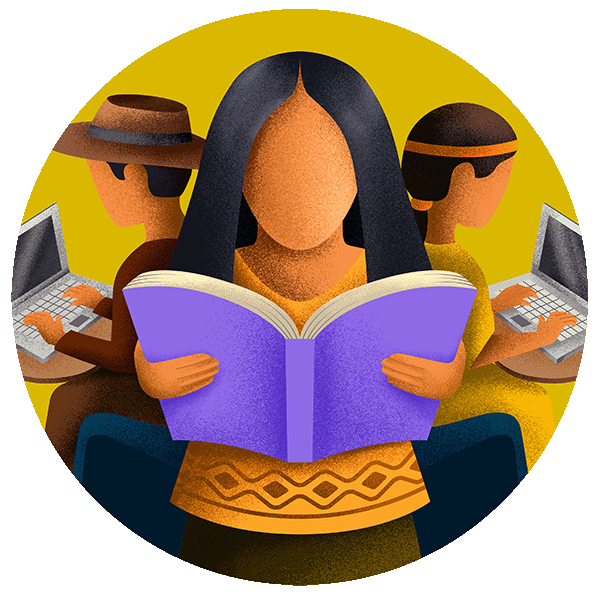
Protect The Land! - Jimmy Aqjagnayuq Ullikatalik At COP26
Many people think climate change mainly means warmer temperatures. But temperature rise is only the beginning of the story. Because the Earth is a system, where everything is connected, changes in one area can influence changes in all others. The consequences of climate change now include, among others, intense droughts, water scarcity, severe fires, rising sea levels, flooding, melting polar ice, catastrophic storms, and declining biodiversity.
Joseph Itongwa On Climate Change In The Democratic Republic Of Congo
Climate change refers to long-term shifts in temperatures and weather patterns. These shifts may be natural, such as through variations in the solar cycle. But since the 1800s, human activities have been the main driver of climate change, primarily due to burning fossil fuels like coal, oil, and gas. Burning fossil fuels generates greenhouse gas emissions that act like a blanket wrapped around the Earth, trapping the sun’s heat and raising temperatures.
Victor Lopez-Carmen On The Impact Of Climate Change
For nearly three decades the UN has been bringing together almost every country on earth for global climate summits, United Nations Framework Convention on Climate Change (UNFCCC) Conferences of the Parties (COP). In that time, climate change has gone from being a fringe issue to a global priority. Cultural Survival's Director of Strategic Partnerships and Communications Daisee Francour (Oneida) spoke to youth activist Victor Lopez-Carmen (Crow Creek Sioux and Yaqui) at COP 26.
Indigenous Peoples Want Meaningful Consultation And Participation - Getrude Kenyangi At COP26
For nearly three decades the UN has been bringing together almost every country on earth for global climate summits – called COPs – which stands for ‘Conference of the Parties’. In that time climate change has gone from being a fringe issue to a global priority. Cultural Survival's Director of Strategic Partnerships and Communications Daisee Francour (Oneida) spoke to Gertrude Kenyangi (Batwa), Executive Director at Support for Women in Agriculture and Environment (SWAGEN) from Uganda, at COP26 which is taking place in Glasgow, Scotland, in November 2021.
The Impact Of Climate Change On The Arctic Region - Dalee Sambo Dorough At COP 26
Cultural Survival's Avexnim Cojti attended the COP26 summit, and spoke to Dr. Dalee Sambo Dorough (Iñupiat), International Chair of the Inuit Circumpolar Council, who has served as an expert member of the UN Permanent Forum on Indigenous Issues for 2016 and 2017 and as a member of the International Law Association Committee on Implementation of the UN Declaration on the Rights of Indigenous Peoples.
Carson Kiburo On The Impact Of Climate Change On The Endorois Peoples Of Kenya
In November 2021, the 26th Conference of the parties is being held in Glasgow.
Cultural Survival’s Director of Strategic Partnerships and Communications Daisee Francour (Oneida) attended the summit and spoke to Carson Kiburo, Executive Director of the Jamii Asilia Centre, who is a youth leader and a community organizer from the Endorois Peoples of Kenya. He works on Indigenous Peoples' rights, youth empowerment, and global governance.
The Pacific Region Is Present at COP26!
Indigenous Peoples have always been at the forefront of climate change issues, whether that is in protecting forested areas, being disproportionately affected by sea-level rise, or leading protests and movements to shift consciousness and paradigms. However, their access to having a seat at the table when it comes to international climate change negotiations and treaties has been little to none. The UN has made some progress in including Indigenous voices in these processes, and Indigenous leaders continue to leave their mark on important agreements.
Indigenous Peoples Unite At COP26 - Cultural Survival Speaks To Hindou Oumarou Ibrahim
Thought leaders and environmental activists from all over the world have come together at the 26th UNFCCC Conference of Parties, in Glasgow, Scotland, in an effort to unite in the battle against climate change, and to share ideas of how Western science and Indigenous Knowledge can come together for the common good of mankind. Indigenous Peoples from Ecuadorian Amazon, Chad, Alaska, Sweden, Indonesia and Australia, Russia, the USA, and many other places are making sure that Indigenous voices are heard at COP26.
Brazil's First Indigenous Lawyer Speaks At COP26
Indigenous Peoples in Brazil have suffered greatly under the leadership of President Jair Bolsonaro. In the Amazon, fires, deforestation, and illegal mining are some of the issues that affect the Indigenous Peoples of that region.
Joênia Wapichana (Wapixana) is a woman of firsts. She was the first in her family to go to university, to study law, and in 1997, she became Brazil’s first Indigenous lawyer. In 2018, she became Brazil’s first Indigenous congresswoman. Cultural Survival's Avexnim Cojti spoke to Joenia at COP 26, in Glasgow, Scotland.
The Impact Of Global Decisions On Local Communities - Joan Carling At COP26
Joan Carling (Kankanaey), Co-convenor of the Indigenous Peoples’ Major Group for Sustainable Development (IPMG), is an Indigenous activist from the Cordillera in the Philippines with more than 20 years of experience in working on Indigenous issues from the grassroots to the international level. Her expertise includes areas like human rights, sustainable development, the environment, climate change, and also the implementation of Free, Prior and Informed Consent.
Joan Carling attended the 26th convening of the Conference of the Parties or COP 26 in Glasgow in November 2021.
